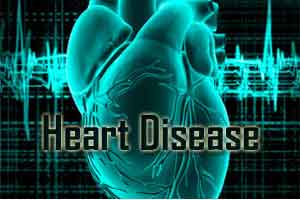- Home
- Editorial
- News
- Practice Guidelines
- Anesthesiology Guidelines
- Cancer Guidelines
- Cardiac Sciences Guidelines
- Critical Care Guidelines
- Dentistry Guidelines
- Dermatology Guidelines
- Diabetes and Endo Guidelines
- Diagnostics Guidelines
- ENT Guidelines
- Featured Practice Guidelines
- Gastroenterology Guidelines
- Geriatrics Guidelines
- Medicine Guidelines
- Nephrology Guidelines
- Neurosciences Guidelines
- Obs and Gynae Guidelines
- Ophthalmology Guidelines
- Orthopaedics Guidelines
- Paediatrics Guidelines
- Psychiatry Guidelines
- Pulmonology Guidelines
- Radiology Guidelines
- Surgery Guidelines
- Urology Guidelines
Even genetic risk of heart attack reversed with lifestyle

It is often said in the context of lifestyle diseases that “genetics loads the gun, lifestyle pulls the trigger.” This means that unhealthy lifestyle can easily trigger diabetes and heart disease among people who are genetically predisposed to them. Now a study has shown that even if one is genetically prone to diabetes or heart disease, one can reduce the risk with the healthy lifestyle.
In recent years, several genomic studies have identified genes that are linked with risk of obesity, diabetes and heart disease among different population groups. Such findings make people neglect their lifestyles, as they think that why should they bother if anyway they are genetically predisposed to these diseases. The new Indo-British study debunks this, in the case of Indians.
The study has found that people who are genetically more prone to get diabetes and heart disease can reduce their risk with lifestyle modification – consumption of healthy food and physical activity.
Participants in the study conducted in Chennai - considered India’s diabetes capital - who followed a low-fat diet reported higher levels of good cholesterol or HDL despite carrying a gene shown to increase risk of diabetes in earlier studies. Researchers looked at two gene variants - MC4R and TCF7L2 – known to increase risk of metabolic disorders among study participants who were part of an ongoing study called Chennai Urban Rural Epidemiology Study (CURES).
“We examined if the association between MC4R and TCF7L2 genes, and cardio-metabolic traits is modified by dietary factors and physical activity,” explained Dr Vimal S Karani, a member of the research team. “We found that individuals who consumed a low-fat diet had higher levels of good cholesterol despite carrying the risky gene variant. In particular, those who consumed a diet low in polyunsaturated fatty acids (PUFA) had higher levels of good cholesterol despite carrying the same TCF7L2 gene variant.”
Besides analyzing genomic data, researchers evaluated dietary habits through a ‘food frequency questionnaire’ consisting of 222 different foods. It included information about portion size and frequency as well. In the same way, physical activity was measured. Individuals were categorized as ‘vigorously active’ when they both exercised and engaged in demanding work activities, while those in ‘moderately active’ group either exercised or carried out heavy physical work. The rest were separated into the sedentary group. The study results have been published in journal PLOS One.
The research team included Vimal S Karani, Szilvia Gaal, Israa Shatwan, Shelini Surendran, Julie A. Lovegrove (University of Reading, UK); Viswanathan Mohan, Dhanasekaran Bodhini, Kandaswamy Ramya, Vasudevan Sudha, Mohan R. Anjana Venkatesan Radha (Madras Diabetes Research Foundation); and Basma Ellahi (University of Chester, UK). (The study was first published in India Science Wire)

Disclaimer: This site is primarily intended for healthcare professionals. Any content/information on this website does not replace the advice of medical and/or health professionals and should not be construed as medical/diagnostic advice/endorsement or prescription. Use of this site is subject to our terms of use, privacy policy, advertisement policy. © 2020 Minerva Medical Treatment Pvt Ltd